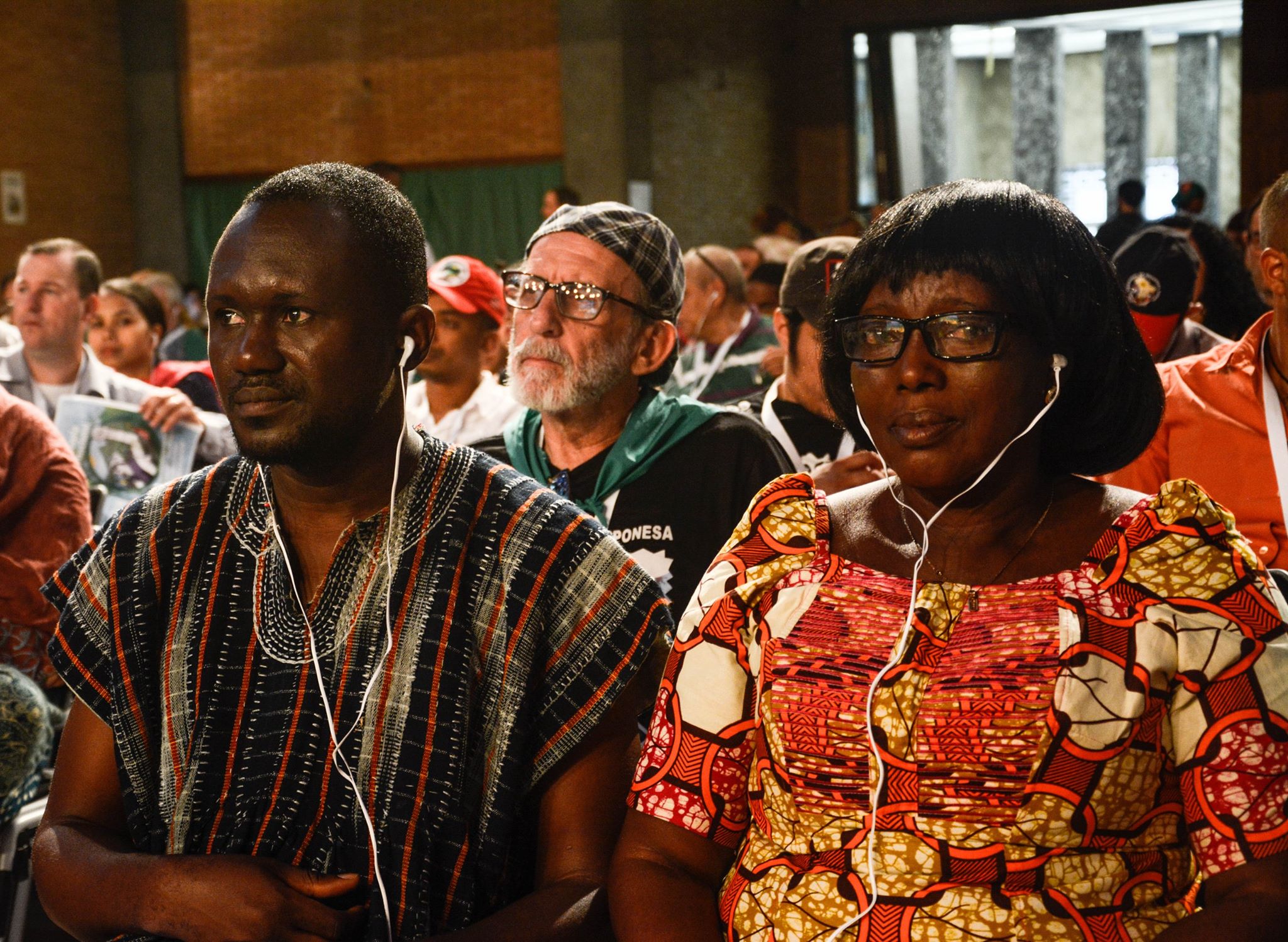Notes from the VII Conference: Political context and struggles in Africa

The first afternoon of the VIIth International Conference of La Via Campesina was devoted to the international political context which is characterised by the unsolvable capitalist crisis and ever stronger pressures on populations, states and the environment together with the dangerous commercialisation of natural resources. The future is the struggles and resistance that have been outlined. La Via Campesina’s members, throughout the world, consider that the only alternative to the proposed model is food sovereignty, and that agroecology is the only way to achieve this and to feed the people. In these two spaces the regional specificities were analysed.
Political Context
In Africa, young and fragile democracy is suffering a serious setback which in turn means that so too are freedom of expression and of organisation. Political systems are paralysed and citizens’ rights are flouted. Since liberalization in the 80s, African markets have become more open to the world. However, currently the political right is not respected. First land was grabbed; then the seeds, with the support of the Bill Gates foundation, and others; and then the water, to the point that now all of the continent’s riches are in the hands of a few, with the blessing of the IMF (International Monetary Fund) and the World Bank. In the sphere of agriculture, huge swathes of land, supposedly under-used, are sacrificed for large scale investment projects, mechanisation and the use of chemicals. This situation forces the young people who are without prospects and who make up the majority of the population, to leave the country on the perilous path of migration or being exploited by fundamentalists for extremists means.
Struggles and resistance
Justice, whether climatic, civilian or access to common goods, encompasses all of the African struggles. The peasant movement is present on all fronts. It fights against the inextricable power of the corporate-state, notably through popular tribunals; pressure on the governments; a procession for the seeds, water and land which traversed West Africa this Spring; and the campaign for the dismantling of the multinationals’ power and impunity. Climate related actions enable peasants to build alliances and to strengthen the movement. Regional consultations on peasant rights have involved other members of civil society. The aim of La Via Campesina’s organisations is to reach the critical mass of young people who believe that a dignified life and another world are possible. Consequently, numerous political and ideological training sessions have been set up to promote a peasant agroecology based on autonomy and knowledge sharing.
